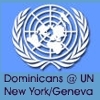

| BRIEFING - August 24, 2011 | To learn more about the Millenium Development Goals, click on the graphic Past Briefings: August 10, 2011 June 22, 2011 June 8, 2011 May 11, 2011 April 27, 2011 April 6, 2011 March 23, 2011 March 9, 2011 February 9, 2011 January 26, 2011 January 12, 2011 |
||
Time for action: 20th anniversary of Earth Summit “The movement to turn the world from its self-consumptive course to one of renewal and sustenance has unmistakably spread… Though in the aftermath of Rio there is a heightened awareness of, and debate over the compelling need for action, there is not yet a concerted and decisive response to the magnitude and urgency of the task… There is much to be done.”
These words were spoken 20 years ago, by Maurice F. Strong, the Secretary General of the UN Conference on Environment and Development (the Earth Summit), held in June 1992 in Rio de Janeiro, Brazil. June of 2012 will mark the 20th anniversary of this summit, and plans are in process for the 2012 UN Conference on Sustainable Development: Rio + 20. The objective of the conference is to secure renewed political commitment for sustainable development; to asses the progress to date and the remaining gaps in implementation of the outcomes of the major summits on sustainable development; and to consider new and emerging challenges. The conference will focus on two major themes: green economy in the context of sustainable development and poverty eradication; and, the institutional framework for sustainable development. Mr. Sha Zukang Secretary General of the Conference, said in March of this year, “Rio + 20 is humanity’s chance to commit to a transition to a green economy, to lift people out of poverty. We cannot wait another 20 years.” (As a backdrop to the upcoming Rio + 20 Conference, it would be good to recall the evolution of the conversation on sustainable development at the United Nations—see January 12, 2011 Briefing ). So far, countries have been slow to engage with the Rio + 20 agenda. No global leaders have come forward with a compelling vision for the summit, and it has received little, if any, press attention. In part, this is because the conference is still a long way off. However, there are deeper, and far more troubling reasons for this. In general, there is a great malaise in regard to multilateral processes. The failure of governments to agree to a global climate change agreement in Copenhagen in 2009, and the seemingly intractable stand-offs in the negotiations point to a crisis within the international community. The failure of the UN Commission on Sustainable Development to produce an outcome document in its May 2011 session illustrates an unwillingness to cooperate on some of the most urgent global issues of our time. The bottom line is simply that we can no longer conduct “business as usual” in a world with limited resources. Many in the developed world, however, including the United States, balk at anything that is perceived as limiting their “economic growth.” In an address this past June, Joseph Deiss (Switzerland), President of the General Assembly, spoke of the “green economy” as a topic of central importance to our well-being and that of future generations. “The longer we wait, the harder and more costly it will be to address the environmental challenges that we face,” said Mr. Deiss. He went on to note that the environmental challenges we face today are greatly exacerbated by an increase in global population, as well as by increased urbanization and industrialization. We can no longer meet the legitimate aspirations of the poor for better living standards with our current economic model, as this will continue to generate pollution and deplete already scarce resources. The way we do development as we move into the future must be equitable, sustainable, and meet the needs of today without jeopardizing opportunities for future generations. Rio + 20 presents us with a moment of opportunity. Over the past several decades we have witnessed multiple economic crises and widening social disparities, with one-fifth of the world’s population consuming 80 percent of the world’s resources. We have also experienced unprecedented environmental disasters, resulting in food scarcity, water shortage, and loss of biodiversity. These three pillars of sustainable development—the economic, the social and the environmental—and the inter-relationship between them, all point to the urgent need for a new paradigm—a “green economy”—that fosters a harmonious balance between environmental and social rights on the one hand, and sound economic principles on the other. While there is no universally acceptable definition of a “green economy,” the United Nations Environment Program 2011 defines it as “…one that results in improved human well-being and social equity, while significantly reducing environmental risks and ecological scarcities.” Depending on one’s perspective, green economy can be seen as solely an economic issue, or, solely an environmental issue. On the other hand, it can also be seen as one which places economic gain before the environment, and views the environment as a commodity to be expended without consideration of long-term consequences. Rio + 20’s theme—“a green economy in the context of sustainable development and poverty eradication”—carries the promise of a new economic growth paradigm that is friendly to Earth’s ecosystems even as it contributes to poverty eradication. For more information on Rio + 20, please see:
|
Dominican Leadership Conference
Building relationships and collaborating in the mission of preaching the Gospel
29000 West Eleven Mile Road
Farmington Hills MI 48336
248-536-3234 Contact: Executive Director
